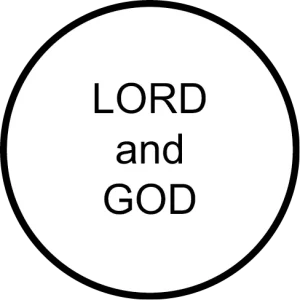Darby
Active Member
One reason is understanding the Bible: Christadelphians emphasize the Bible as the ultimate authority, and studying the movement can provide insights into the interpretation and application of biblical texts. I believe there is a lot of misunderstanding on both sides of the discussion between Christadelphians and mainstream Christianity. Especially meaning and interpretation of biblical texts and translations Christadelphians use to prove in their dialogue.
Most Christians know little, if anything, about Christadelphians and when they do meet one, have no idea how to engage with them. I now realize that Christadelphians, for their part, tend to have a somewhat misconstrued view of what mainstream Christians believe and perhaps more significantly, why they believe what they do.
There also is a tendency for Christadelphians to be very defensive about their beliefs, and a strong sense of exclusivity pervades their dialogue. This is understandable from their point of view; they see themselves as the “remnant,” custodians of “The Truth” in these last days, as against the mainstream churches who are viewed as apostate from original New Testament Christianity. This is a view common to many other sects and non-mainstream denominations.
From the mainstream perspective, there is a ton of good quality literature about Christadelphians and their beliefs online and in religious databases. Compared with the more numerous and higher profile communities such as the Jehovah’s Witnesses, Christian Scientists, and Mormons, Christadelphians remain for the most part obscure and neglected. But unless a point of view is clearly understood and articulated, how can there be a fair and critical engagement with it?
It's good to keep in mind that when engaging Christadelphians, Arians, and Unitarians with the Gospel of the Triune God you will be opening up a can of worms. It's a complicated matter likely to prove awkward.
The name “Christadelphian” comes from the Greek words Christos (Christ) and adelphos (brother) and means “brothers (and sisters) in Christ.” It has been used by the community for some one hundred and forty years and its central publication, The Christadelphian, has been produced by the Christadelphian Office in Birmingham, UK since 1864. Information on Christadelphian beliefs and practices, as explained by the group itself, may be found on the Christadelphian website.
Most Christians know little, if anything, about Christadelphians and when they do meet one, have no idea how to engage with them. I now realize that Christadelphians, for their part, tend to have a somewhat misconstrued view of what mainstream Christians believe and perhaps more significantly, why they believe what they do.
There also is a tendency for Christadelphians to be very defensive about their beliefs, and a strong sense of exclusivity pervades their dialogue. This is understandable from their point of view; they see themselves as the “remnant,” custodians of “The Truth” in these last days, as against the mainstream churches who are viewed as apostate from original New Testament Christianity. This is a view common to many other sects and non-mainstream denominations.
From the mainstream perspective, there is a ton of good quality literature about Christadelphians and their beliefs online and in religious databases. Compared with the more numerous and higher profile communities such as the Jehovah’s Witnesses, Christian Scientists, and Mormons, Christadelphians remain for the most part obscure and neglected. But unless a point of view is clearly understood and articulated, how can there be a fair and critical engagement with it?
It's good to keep in mind that when engaging Christadelphians, Arians, and Unitarians with the Gospel of the Triune God you will be opening up a can of worms. It's a complicated matter likely to prove awkward.
The name “Christadelphian” comes from the Greek words Christos (Christ) and adelphos (brother) and means “brothers (and sisters) in Christ.” It has been used by the community for some one hundred and forty years and its central publication, The Christadelphian, has been produced by the Christadelphian Office in Birmingham, UK since 1864. Information on Christadelphian beliefs and practices, as explained by the group itself, may be found on the Christadelphian website.


